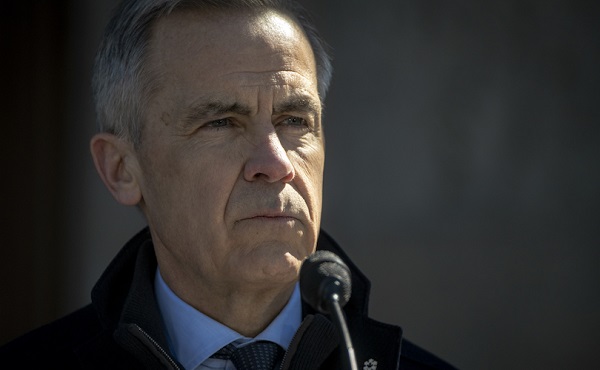Brownstone Institute
How Major Media Suppressed My COVID Journalism

From the Brownstone Institute
BY
The COVID-19 emergency has at last come to an end as even the most restrictive countries — the United States, most recently — have lifted draconian Covid mandates. Freedom has been restored, but the pandemic has left an indelible mark on the bedrock institutions of our society. The corruption of the FDA, CDC, the White House, and Big Pharma has been undeniably exposed — a topic I have exhaustively covered for over a year.
Notably, journalism — the filter through which ordinary people living busy lives come to understand the complex matrix of power, money, and influence — has also been exposed for its bizarre servility to public health decrees and pharmaceutical companies. Writing for the most prominent journalistic outlets since 2020, I saw the decay from the inside. Though I have been hesitant to share my experiences of colliding with the inner machinery of media — for my reputational and financial security — I now feel galvanized to lay it on the table after starting a new Substack with Dr. Jay Bhattacharya.
One of the reasons I unexpectedly found myself in the journalism industry was the real possibility of speaking truth to power, presenting radically novel perspectives, and challenging institutional orthodoxy.
My first major forays into the industry were on topics such as how my experiences with racism from childhood inform my view of race relations, how white guilt and identity politics corrupts our discourse, and how 2020 Black Lives Matter riots wreaked havoc in poor, minority communities.

Pieces that I’m perhaps most proud of are the explosion of inner-city violence in Minneapolis in the aftermath of George Floyd and the new phenomenon of Asian women out-earning white men in the US.
My heterodoxy and unwavering commitment to the truth — whether that made me look right-wing, left-wing, or just an artsy weirdo (at times) — didn’t land me a weekly New York Times column, but it did grant me spots in a number of top liberal and conservative-leaning outlets, such as the New York Post, the Globe and Mail, Foreign Policy Magazine, the Grammys (yes, the music awards — their online vertical), and others.
Until it didn’t.
Having taken the heretical line on race, gender, policing, I thought I was immunized from editorial censorship. But, as the pandemic became increasingly politicized through 2021 and 2022 with the rollout of vaccines and public mandates, our society seemed to plunge into further collective psychosis, as spiritual teacher Eckhart Tolle has persipaciously observed.
For the first year-and-a-half of the pandemic, I didn’t take any public stance on what was a complex epidemiological issue requiring legitimate expertise to navigate. Besides, I was regularly writing about race, BLM, and policing in the summer of 2020. Then, in the summer of 2021 Justin Trudeau and provincial leaders announced vaccine mandates across the country. Suddenly, going to the gym, restaurants, and large gatherings was conditional on taking a novel mRNA vaccine for a virus that posed less than a 0.003 percent mortality risk for people my age.
I started to examine whether this was the right medical decision for my health. Upon close scrutiny of the best available data, I came away thinking it was not. I didn’t think the Covid vaccine would be an instant death sentence for me, but I didn’t see clear evidence of benefit for healthy people in their 20s. It also just happened to be the case that I fell in the very demographic that was most at-risk of developing a serious vaccine side effect — myocarditis or pericarditis (cardiac inflammation).
Among the most rigorous, comprehensive data we have on vaccine myocarditis is from Dr. Katie Sharff who analyzed a database from Kaiser Permanente. She found a 1/1,862 rate of myocarditis after the second dose in young men ages 18 – 24. For boys ages 12 – 17, the rate was 1/2,650. Active surveillance monitoring in Hong Kong shows virtually identical figures.
Confused and looking for clarity, I reached out to Dr. Jay Bhattacharya — who was among the most sensible public health policy advocates throughout the pandemic — and he validated my serious concerns of vaccine safety and draconian public health policy more broadly.
Frustrated by the government coercing me into taking a medical procedure that was not in my best interest, I resolved to write about this injustice in the several outlets which had previously published my work.
Right away, I faced tremendous resistance of the kind that I never expected. The rejection I experienced when pitching a wide variety of pieces on Covid mandates — reported, opinionated, based on the views of credentialed scientific experts etc.— was unprecedented. Even editors who I deemed as allies — publishing polarizing pieces such as the “fallacies of white privilege” or why Robin DiAngelo’s last popular racism guidebook promotes a “dehumanizing form of condescension towards racial minorities” — were averse to my work questioning scientifically dubious vaccine mandate policies on the grounds of bodily autonomy and medical freedom.
Many editors explicitly stated their outlets were “pro-vaccine” and didn’t want to run anything that may promote an iota of “vaccine hesitancy” — even in young, healthy groups for which we still have no data on reduction in severe disease or death. One editor responded to my pitch on the lack of epidemiological basis for vaccine mandates with the following:
This paper has been encouraging Covid vaccination for everyone. We don’t want to promote vaccine hesitancy that will get people seriously ill and killed.
Journalists need to be responsible in not sowing distrust in public health guidelines that are meant to keep us safe.
Another editor made it painfully clear after a handful of unsuccessful pitches that the publication as a whole was not keen on publishing anything that deviated from the CDC and FDA’s universal vaccine advisory (vigorously critiqued by the likes of Vinay Prasad and Tracy Beth Høeg MD, PhD.).
I’m going to pass.
As I’ve said many times before, we are a pro-vaccination newspaper, and personally I just wish everyone would get vaccinated already. While I respect your decision not to do so (and I agree jail time for those who don’t is overkill), I’m not keen on op-eds that even appear like they’re arguing against vaccination for Covid or anything else.
Trying to figure out a way to capitalize on a hot news story — as every freelancer learns how to do — I started sending pitches on viral stories of athletes being barred from competition due to their personal choice not to get vaccinated. In response to my proposal on tennis star Novak Djokovic’s debacle, one editor expressed his utter contempt for Djokovic:
In no way do I want a piece supporting people who refuse to get vaccinated. In my opinion, people such as Djokovic, who refuse to get vaxxed, make their own beds and should lie in it.
They are not heroes.
On my pitch about NBA star Kyrie Irving, who had to sit out several games for the Brooklyn Nets because of some undefined risk he posed to society as an unvaccinated player, an editor I was very close with made her profound disagreement undoubtedly clear:
Sorry Rav, but I vehemently disagree with you on this issue. Feel free to pitch elsewhere.
Kyrie Irving refused to help the public get out of the pandemic and now he’s suffering the consequences. It’s on him.
On a couple of occasions, I attempted to cover the perpetually escalating Joe Rogan Covid controversy. In my several pitches, I took various angles such as how many credentialed scientific experts — such as Bhattacharya, Makary, Prasad, and others — were more in line with Rogan’s anti-mandate views than the government and public health agencies were. Here are two editor responses I received when pitching a story on the bizarre controversy of Rogan’s comments that young people in their 20s didn’t need to take the Covid vaccine (May 2021):
Rav, we are not interested in running stories like this.
I think Rogan is actively endangering the lives of children and young adults with his anti-vaccine propaganda — and you need to be more responsible in your coverage as a journalist.
I’m not interested in the Rogan story. It could too easily be construed as anti-vaccine and we want to steer well clear of that.
I don’t want any ambiguity on the issue.
One publication, whose whole mission has been from the start to expose and dismantle institutional orthodoxy, uncritically took the mainstream view on vaccine recommendations as gospel. This editor, who had “platformed” my work explaining the oft-justifiability of police shootings of highly violent, threatening suspects — which, again, was in line with their anti-mainstream view —opposed any view critical of vaccine mandates. In response to one of my pitches on the downplayed risk of vaccine-induced myocarditis in young men, he responded:
Rav, sorry but we’re not going to run any anti-vaccine pieces.
I think the risk is totally overblown and amplified by right-wing pundits who have no concern for public health. These are the safest vaccines we’ve ever had and virtually everyone seeks to benefit.
None of this was based on rigorous scientific analysis — it was all premised on a naive trust in public health authorities and pharmaceutical companies.
As it turns out, the mRNA vaccines are, by all current accounts, the most dangerous government-promoted pharmaceutical products in history. Fraiman and colleagues’ independent analysis of Pfizer and Moderna’s safety data in the medical journal Vaccine shows that mRNA covid vaccines are associated with a 1 in 800 adverse event rate — substantially higher than other vaccines on the market (typically in the range of 1 in a million adverse event rates).
[Note: this study does not negate the effectiveness of mRNA vaccines in reducing death and severe disease in elderly populations (for which we have good data). I personally recommended my grandparents to get vaccinated and was happy they followed through.]
Due to the increasing censorship I faced, I ended up self-publishing my vaccine-myocarditis investigations, including one story on how a 38-year-old law enforcement member in my area almost died from acute vaccine-induced myocarditis after he was forced to get double-jabbed against his will.
At a time when government officials and public health bureaucrats are actively misleading the public, it is the media’s crucial responsibility to hold them accountable. Unchecked power — when unrecognized by the masses — metastasizes and devolves into tyrannical control. This is how you get the FDA approving and recommending the new “bivalent” booster shot to all Americans — as young as 6 months old — based on lab-testing in eight mice (with the White House recklessly advertising on their behalf).
When the media fails, civilization begins to unwind. The powerful get away with more corruption and media homogeneity solidifies, congeals, and becomes increasingly treacherous to question.
This has been my experience over the past two years.
An industry already compromised in the age of Trump and wokeism completely fell apart during a global pandemic. My collisions with this inner machinery are not merely a story of left-wing media bias (a given fact for decades), but — as I alluded to several times — people working in even alternative and right-leaning media spaces refusing to air any form of refutation of authoritarian public health mandates.
This is why traditional left-versus-right paradigms are obsolete. Many “conservatives” bought the public health propaganda wholesale while a number of traditionally progressive thinkers — such as Russell Brand, Matt Taibbi, Jimmy Dore, and Glenn Greenwald (regardless of their personal medical decisions) — vigorously objected to Covid mandates on the basis of foundational, societal principles.
I have largely abstained from sharing my visceral feelings on the demoralizing rejection (and financial loss) I faced for two years as a previously welcomed journalist in major outlets, but suffice it to say I felt incredibly trapped, helpless, vexed, and lost. Some of the aforementioned editors recommended I stick to stories on “cancel culture,” “identity politics,” “race,” and the rest. While all those issues remain deeply concerning, the proposition of being pigeonholed in one specific topic while being censored in another that is far more alarming on a societal level (“Take the jab, or lose your job”) was repugnant to me.
I refuse to be censored.
I won’t perpetually write stories about wokeism spiralling out of control in liberal sectors of society in order to gain clicks and a steady paycheck on conservative websites who want to feed their readers only one narrative.
Today, I am no longer indignant and hopeless, waiting for one of my previous editors to offer me an opportunity again. I have now started my new, independent venture on this platform — The Illusion of Consensus — and am looking forward to bringing new, exciting content to my readers.
Thank you to those who helped share and amplify the several stories I independently wrote on my personal Substack (with a small audience and minimal financial gain) such as Jordan Peterson, Joe Rogan, and Glenn Greenwald.
As I progress in my ever-evolving journalistic path to expose the truth, I hope you will continue to support my work.
Republished from the author’s Substack
Brownstone Institute
Net Zero: The Mystery of the Falling Fertility

From the Brownstone Institute
By
If you want to argue that a mysterious factor X is responsible for the drop in fertility, you will have to explain (1) why the factor affected only the vaccinated, and (2) why it started affecting them at about the time of vaccination.
In January 2022, the number of children born in the Czech Republic suddenly decreased by about 10%. By the end of 2022, it had become clear that this was a signal: All the monthly numbers of newborns were mysteriously low.
In April 2023, I wrote a piece for a Czech investigative platform InFakta and suggested that this unexpected phenomenon might be connected to the aggressive vaccination campaign that had started approximately 9 months before the drop in natality. Denik N – a Czech equivalent of the New York Times – immediately came forward with a “devastating takedown” of my article, labeled me a liar and claimed that the pattern can be explained by demographics: There were fewer women in the population and they were getting older.
To compare fertility across countries (and time), the so-called Total Fertility Rate (TFR) is used. Roughly speaking, it is the average number of children that are born to a woman over her lifetime. TFR is independent of the number of women and of their age structure. Figure 1 below shows the evolution of TFR in several European countries between 2001 and 2023. I selected countries that experienced a similar drop in TFR in 2022 as the Czech Republic.

So, by the end of 2023, the following two points were clear:
- The drop in natality in the Czech Republic in 2022 could not be explained by demographic factors. Total fertility rate – which is independent of the number of women and their age structure – dropped sharply in 2022 and has been decreasing ever since. The data for 2024 show that the Czech TFR has decreased further to 1.37.
- Many other European countries experienced the same dramatic and unexpected decrease in fertility that started at the beginning of 2022. I have selected some of them for Figure 1 but there are more: The Netherlands, Norway, Slovakia, Slovenia, and Sweden. On the other hand, there are some countries that do not show a sudden drop in TFR, but rather a steady decline over a longer period (e.g. Belgium, France, UK, Greece, or Italy). Notable exceptions are Bulgaria, Spain, and Portugal where fertility has increased (albeit from very low numbers). The Human Fertility Project database has all the numbers.
This data pattern is so amazing and unexpected that even the mainstream media in Europe cannot avoid the problem completely. From time to time, talking heads with many academic titles appear and push one of the politically correct narratives: It’s Putin! (Spoiler alert: The war started in February 2022; however, children not born in 2022 were not conceived in 2021). It’s the inflation caused by Putin! (Sorry, that was even later). It’s the demographics! (Nope, see above, TFR is independent of the demographics).
Thus, the “v” word keeps creeping back into people’s minds and the Web’s Wild West is ripe with speculation. We decided not to speculate but to wrestle some more data from the Czech government. For many months, we were trying to acquire the number of newborns in each month, broken down by age and vaccination status of the mother. The post-socialist health-care system of our country is a double-edged sword: On one hand, the state collects much more data about citizens than an American would believe. On the other hand, we have an equivalent of the FOIA, and we are not afraid to use it. After many months of fruitless correspondence with the authorities, we turned to Jitka Chalankova – a Czech Ron Johnson in skirts – who finally managed to obtain an invaluable data sheet.
To my knowledge, the datasheet (now publicly available with an English translation here) is the only officially released dataset containing a breakdown of newborns by the Covid-19 vaccination status of the mother. We requested much more detailed data, but this is all we got. The data contains the number of births per month between January 2021 and December 2023 given by women (aged 18-39) who were vaccinated, i.e., had received at least one Covid vaccine dose by the date of delivery, and by women who were unvaccinated, i.e., had not received any dose of any Covid vaccine by the date of delivery.
Furthermore, the numbers of births per month by women vaccinated by one or more doses during pregnancy were provided. This enabled us to estimate the number of women who were vaccinated before conception. Then, we used open data on the Czech population structure by age, and open data on Covid vaccination by day, sex, and age.
Combining these three datasets, we were able to estimate the rates of successful conceptions (i.e., conceptions that led to births nine months later) by preconception vaccination status of the mother. Those interested in the technical details of the procedure may read Methods in the newly released paper. It is worth mentioning that the paper had been rejected without review in six high-ranking scientific journals. In Figure 2, we reprint the main finding of our analysis.

Figure 2 reveals several interesting patterns that I list here in order of importance:
- Vaccinated women conceived about a third fewer children than would be expected from their share of the population. Unvaccinated women conceived at about the same rate as all women before the pandemic. Thus, a strong association between Covid vaccination status and successful conceptions has been established.
- In the second half of 2021, there was a peak in the rate of conceptions of the unvaccinated (and a corresponding trough in the vaccinated). This points to rather intelligent behavior of Czech women, who – contrary to the official advice – probably avoided vaccination if they wanted to get pregnant. This concentrated the pregnancies in the unvaccinated group and produced the peak.
- In the first half of 2021, there was significant uncertainty in the estimates of the conception rates. The lower estimate of the conception rate in the vaccinated was produced by assuming that all women vaccinated (by at least one dose) during pregnancy were unvaccinated before conception. This was almost certainly true in the first half of 2021 because the vaccines were not available prior to 2021. The upper estimate was produced by assuming that all women vaccinated (by at least one dose) during pregnancy also received at least one dose before conception. This was probably closer to the truth in the second part of 2021. Thus, we think that the true conception rates for the vaccinated start close to the lower bound in early 2021 and end close to the upper bound in early 2022. Once again, we would like to be much more precise, but we have to work with what we have got.
Now that the association between Covid-19 vaccination and lower rates of conception has been established, the one important question looms: Is this association causal? In other words, did the Covid-19 vaccines really prevent women from getting pregnant?
The guardians of the official narrative brush off our findings and say that the difference is easily explained by confounding: The vaccinated tend to be older, more educated, city-dwelling, more climate change aware…you name it. That all may well be true, but in early 2022, the TFR of the whole population dropped sharply and has been decreasing ever since.
So, something must have happened in the spring of 2021. Had the population of women just spontaneously separated into two groups – rednecks who wanted kids and didn’t want the jab, and city slickers who didn’t want kids and wanted the jab – the fertility rate of the unvaccinated would indeed be much higher than that of the vaccinated. In that respect, such a selection bias could explain the observed pattern. However, had this been true, the total TFR of the whole population would have remained constant.
But this is not what happened. For some reason, the TFR of the whole population jumped down in January 2022 and has been decreasing ever since. And we have just shown that, for some reason, this decrease in fertility affected only the vaccinated. So, if you want to argue that a mysterious factor X is responsible for the drop in fertility, you will have to explain (1) why the factor affected only the vaccinated, and (2) why it started affecting them at about the time of vaccination. That is a tall order. Mr. Occam and I both think that X = the vaccine is the simplest explanation.
What really puzzles me is the continuation of the trend. If the vaccines really prevented conception, shouldn’t the effect have been transient? It’s been more than three years since the mass vaccination event, but fertility rates still keep falling. If this trend continues for another five years, we may as well stop arguing about pensions, defense spending, healthcare reform, and education – because we are done.
We are in the middle of what may be the biggest fertility crisis in the history of mankind. The reason for the collapse in fertility is not known. The governments of many European countries have the data that would unlock the mystery. Yet, it seems that no one wants to know.
Author
Brownstone Institute
FDA Exposed: Hundreds of Drugs Approved without Proof They Work

From the Brownstone Institute
By
The US Food and Drug Administration (FDA) has approved hundreds of drugs without proof that they work—and in some cases, despite evidence that they cause harm.
That’s the finding of a blistering two-year investigation by medical journalists Jeanne Lenzer and Shannon Brownlee, published by The Lever.
Reviewing more than 400 drug approvals between 2013 and 2022, the authors found the agency repeatedly ignored its own scientific standards.
One expert put it bluntly—the FDA’s threshold for evidence “can’t go any lower because it’s already in the dirt.”
A System Built on Weak Evidence
The findings were damning—73% of drugs approved by the FDA during the study period failed to meet all four basic criteria for demonstrating “substantial evidence” of effectiveness.
Those four criteria—presence of a control group, replication in two well-conducted trials, blinding of participants and investigators, and the use of clinical endpoints like symptom relief or extended survival—are supposed to be the bedrock of drug evaluation.
Yet only 28% of drugs met all four criteria—40 drugs met none.
These aren’t obscure technicalities—they are the most basic safeguards to protect patients from ineffective or dangerous treatments.
But under political and industry pressure, the FDA has increasingly abandoned them in favour of speed and so-called “regulatory flexibility.”
Since the early 1990s, the agency has relied heavily on expedited pathways that fast-track drugs to market.
In theory, this balances urgency with scientific rigour. In practice, it has flipped the process. Companies can now get drugs approved before proving that they work, with the promise of follow-up trials later.
But, as Lenzer and Brownlee revealed, “Nearly half of the required follow-up studies are never completed—and those that are often fail to show the drugs work, even while they remain on the market.”
“This represents a seismic shift in FDA regulation that has been quietly accomplished with virtually no awareness by doctors or the public,” they added.
More than half the approvals examined relied on preliminary data—not solid evidence that patients lived longer, felt better, or functioned more effectively.
And even when follow-up studies are conducted, many rely on the same flawed surrogate measures rather than hard clinical outcomes.
The result: a regulatory system where the FDA no longer acts as a gatekeeper—but as a passive observer.
Cancer Drugs: High Stakes, Low Standards
Nowhere is this failure more visible than in oncology.
Only 3 out of 123 cancer drugs approved between 2013 and 2022 met all four of the FDA’s basic scientific standards.
Most—81%—were approved based on surrogate endpoints like tumour shrinkage, without any evidence that they improved survival or quality of life.
Take Copiktra, for example—a drug approved in 2018 for blood cancers. The FDA gave it the green light based on improved “progression-free survival,” a measure of how long a tumour stays stable.
But a review of post-marketing data showed that patients taking Copiktra died 11 months earlier than those on a comparator drug.
It took six years after those studies showed the drug reduced patients’ survival for the FDA to warn the public that Copiktra should not be used as a first- or second-line treatment for certain types of leukaemia and lymphoma, citing “an increased risk of treatment-related mortality.”
Elmiron: Ineffective, Dangerous—And Still on the Market
Another striking case is Elmiron, approved in 1996 for interstitial cystitis—a painful bladder condition.
The FDA authorized it based on “close to zero data,” on the condition that the company conduct a follow-up study to determine whether it actually worked.
That study wasn’t completed for 18 years—and when it was, it showed Elmiron was no better than placebo.
In the meantime, hundreds of patients suffered vision loss or blindness. Others were hospitalized with colitis. Some died.
Yet Elmiron is still on the market today. Doctors continue to prescribe it.
“Hundreds of thousands of patients have been exposed to the drug, and the American Urological Association lists it as the only FDA-approved medication for interstitial cystitis,” Lenzer and Brownlee reported.
“Dangling Approvals” and Regulatory Paralysis
The FDA even has a term—”dangling approvals”—for drugs that remain on the market despite failed or missing follow-up trials.
One notorious case is Avastin, approved in 2008 for metastatic breast cancer.
It was fast-tracked, again, based on ‘progression-free survival.’ But after five clinical trials showed no improvement in overall survival—and raised serious safety concerns—the FDA moved to revoke its approval for metastatic breast cancer.
The backlash was intense.
Drug companies and patient advocacy groups launched a campaign to keep Avastin on the market. FDA staff received violent threats. Police were posted outside the agency’s building.
The fallout was so severe that for more than two decades afterwards, the FDA did not initiate another involuntary drug withdrawal in the face of industry opposition.
Billions Wasted, Thousands Harmed
Between 2018 and 2021, US taxpayers—through Medicare and Medicaid—paid $18 billion for drugs approved under the condition that follow-up studies would be conducted. Many never were.
The cost in lives is even higher.
A 2015 study found that 86% of cancer drugs approved between 2008 and 2012 based on surrogate outcomes showed no evidence that they helped patients live longer.
An estimated 128,000 Americans die each year from the effects of properly prescribed medications—excluding opioid overdoses. That’s more than all deaths from illegal drugs combined.
A 2024 analysis by Danish physician Peter Gøtzsche found that adverse effects from prescription medicines now rank among the top three causes of death globally.
Doctors Misled by the Drug Labels
Despite the scale of the problem, most patients—and most doctors—have no idea.
A 2016 survey published in JAMA asked practising physicians a simple question—what does FDA approval actually mean?
Only 6% got it right.
The rest assumed that it meant the drug had shown clear, clinically meaningful benefits—such as helping patients live longer or feel better—and that the data was statistically sound.
But the FDA requires none of that.
Drugs can be approved based on a single small study, a surrogate endpoint, or marginal statistical findings. Labels are often based on limited data, yet many doctors take them at face value.
Harvard researcher Aaron Kesselheim, who led the survey, said the results were “disappointing, but not entirely surprising,” noting that few doctors are taught about how the FDA’s regulatory process actually works.
Instead, physicians often rely on labels, marketing, or assumptions—believing that if the FDA has authorized a drug, it must be both safe and effective.
But as The Lever investigation shows, that is not a safe assumption.
And without that knowledge, even well-meaning physicians may prescribe drugs that do little good—and cause real harm.
Who Is the FDA Working for?
In interviews with more than 100 experts, patients, and former regulators, Lenzer and Brownlee found widespread concern that the FDA has lost its way.
Many pointed to the agency’s dependence on industry money. A BMJ investigation in 2022 found that user fees now fund two-thirds of the FDA’s drug review budget—raising serious questions about independence.

Yale physician and regulatory expert Reshma Ramachandran said the system is in urgent need of reform.
“We need an agency that’s independent from the industry it regulates and that uses high-quality science to assess the safety and efficacy of new drugs,” she told The Lever. “Without that, we might as well go back to the days of snake oil and patent medicines.”
For now, patients remain unwitting participants in a vast, unspoken experiment—taking drugs that may never have been properly tested, trusting a regulator that too often fails to protect them.
And as Lenzer and Brownlee conclude, that trust is increasingly misplaced.
- Investigative report by Jeanne Lenzer and Shannon Brownlee at The Lever [link]
- Searchable public drug approval database [link]
- See my talk: Failure of Drug Regulation: Declining standards and institutional corruption
Republished from the author’s Substack
-

 Business2 days ago
Business2 days agoCarney’s Ethics Test: Opposition MP’s To Challenge Prime Minister’s Financial Ties to China
-

 Business2 days ago
Business2 days agoAttrition doesn’t go far enough, taxpayers need real cuts
-

 Business2 days ago
Business2 days agoCarney government’s housing GST rebate doesn’t go far enough
-

 Media2 days ago
Media2 days agoCancel culture wins ultimate victory as murder of Charlie Kirk ghoulishly celebrated by radical Left, media included
-

 Alberta2 days ago
Alberta2 days agoBreak the Fences, Keep the Frontier
-

 Health17 hours ago
Health17 hours agoMAiD should not be a response to depression
-

 Opinion1 day ago
Opinion1 day agoRFK Jr. Reveals Unforgettable Details About Charlie Kirk in Emotional Tribute
-

 Alberta1 day ago
Alberta1 day agoAlberta Education negotiations update: Minister Horner









